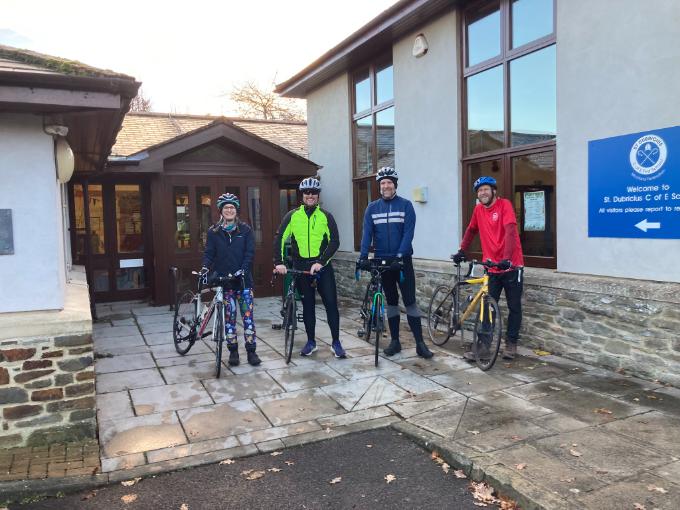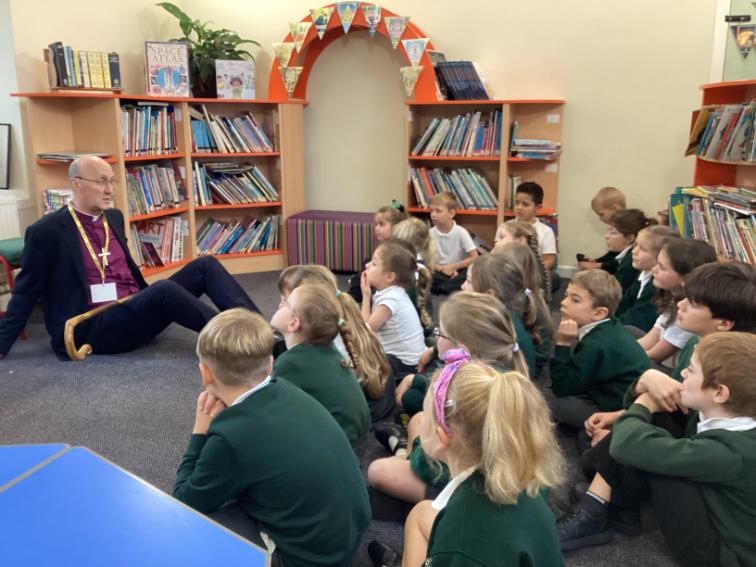SEND
Our job is to help your child achieve the very best they can at school. You know your child best and you may feel that they need some additional help or support for some or all of their time at school.
.jpeg)
Moorland Federation Information
Supporting you to help your child achieve the very best
Our job is to help your child achieve the very best they can at school. You know your child best and you may feel that they need some additional help or support for some or all of their time at school.
Our SENCO team for Moorland Federation
Cutcombe Cof E First School
Mrs Alison Blackmore 01643 841462 Email
Dunster First School
Mr Paul James 01643 821254 Email
Exford CofE First School
Mrs Alison Blackmore 01643 831365 Email
St Dubricius CofE First School
Mrs Angela Hall 01643 862249 Email
Timberscombe CofE First School
Mrs Angela Hall 01643 841259 Email
Langford Budville CofE Primary School
Mrs Angela Hall 01823 400483 Email
All Saints CofE School
Mrs Nicola Stenner 01398 323231 Email
Dulverton Junior School
Mrs Nicola Stenner 01398 323231 Email
Our SEND Governor: Mrs Frances Nicholson
Our job is to help your child achieve the very best they can at school. You know your child best and you may feel that they need some additional help or support for some or all of their time at school.
This page is to inform you of the types of support available for your child within our Federation. It will help you understand who can help and how this support can be accessed.
All pupils in school receive quality first teaching in the classroom. This means that a range of teaching and learning styles are used and that appropriate learning objectives are set for all children with a curriculum matched to their needs.
All our classes are supported by Learning Support Assistants (LSAs) who provide individual or group support. You will be informed if your child needs additional support such as a catch up programme or one to one tuition.
At the Moorland Federation, a child’s progress is monitored, in the first instance, by their class teacher. The progress and attainment of all pupils is reviewed every term with the schools SENDCo, at which time, provision may be adjusted to meet identified needs for all children, not just SEND children. If a teacher is concerned about the progress of an individual child in relation to a SEND need, then a discussion takes place with the Special Educational Needs Coordinator (SENCO) and additional support may be arranged. You will be kept informed at each stage. If you have any concerns about the progress of your child, you should discuss these initially with the Class Teacher.
How we keep you informed about your child’s progress
- You are informed about your child’s general progress at Parents’ Evenings in the Autumn and Spring terms and by an annual report that is provided at the end of the Summer term
- Class targets or an individual education plan (IEP) will keep you informed about your child’s termly targets
- Meetings can be arranged with the SENCO and other professionals from Support Services or outside agencies to discuss your child’s needs and any strategies that may be used to support them.
We have a highly experienced team of staff who may be involved in supporting your child at School. These include:
- The Executive Headteacher
- The Head of School and SENCO
- Your child’s teacher, who will always make sure that tasks set are appropriate and accessible for your child. You can talk to your child’s teacher at the start or end of the school day for short discussions and further meetings can be arranged if required.
- Learning Support Assistants (LSAs), who support all pupils in class.
- Our Emotional Literacy Support Assistant (ELSA), who supports children who may be experiencing emotional difficulties.
- Our Parent Family Support Advisor, who supports families and works with individual children who may be experiencing emotional difficulty.
- Our SEND School Governor, who meets regularly with the SENCO to discuss SEND provision in school
Approximately one in five children will have special educational needs (SEND) at some time during their school career. Children with SEND have learning difficulties and/or physical disabilities which make it harder for them to learn than most children of the same age. They will need extra support or specific programmes.
Schools and other agencies can help most children overcome their difficulties quickly and easily. But a few children will need extra help for some or all of their time in school. This means they may have difficulty with:
- some or all of the work in school
- reading, writing or maths
- understanding information
- expressing themselves
- understanding others
- organising themselves
- sensory perception or physical mobility
- managing their behaviour and emotions
- making friends or relating to adults
Each Class Teacher monitors the progress and attainment of all the children in their class. If the Class Teacher has any concerns about the progress or attainment of a child, they will be discussed with the SENCO at any point in the school year and scheduled meetings take place termly. Class teachers will assess your child to identify their strengths, needs and the extra help they require. This may involve:
- extra help from a Learning Support Assistant in class
- small group or individual support out of class
- use of additional resources
If your child continues to have difficulty even with this extra support, we may decide that further assessment is needed by the SENDCO or outside agencies. With your agreement, a referral may be sent to Support Services or an outside agency such as:
- The Integrated Therapy Service
- The Visual Support Service
- The Hearing Support Service
- Physical Impairment and Medical Support Service
- Health professionals
- Educational Psychologists
- A Social, Emotional and Behavioural Advisory Teacher (SEBS)
- The Child and Mental Health Service (CAMHS)
SEND Support
The SEN Code of Practice came into force in September 2015 and gives guidance to schools in meeting the needs of pupils.
If an SEN need is identified and your child needs extra or different support than most children their age, their name will be included in the School’s SEND register and they will receive additional SEND Support. If your child is included in this register you will be informed. Support for your child is provided according to their individual needs. We follow a four-part process as outlined in the Code of Practice and is indicated below:
- Assess
- Plan
- Do
- Review
By following this process, we can ensure that your child receives appropriate level of support and that we can monitor effectively their progress,
Education Health and Care Plans (EHCP)
- If your child’s needs are complex or severe, a request may be made by Parent/ Carers or the school to the Local Authority to carry out an Education Health and Care (EHC) Assessment of your child’s need
- If the LA agrees, an Education Health and Care Plan (EHCP) will be issued. This document will describe your child’s SEN and the special help they should receive.
If your child has an Education, Health and Care Plan (EHC plan), their targets will be broken down into an Individual Education Plan (IEP) and reviewed each term as part of the Assess-Plan-Do-Review (APDR) process. There will be an annual review each year to update the EHC Plan document with all the professionals involved with your child.
Somerset's SEN Local Offer
Somerset’s SEND Local Offer is our local hub of information and guidance for children and young people with special educational needs and/or disabilities (SEND), their families and professionals in Somerset. Explore services available to support you and how to access them.
Useful Links:
- Somerset Graduated Response Tool
- The Somerset Parent Carer Forum
- SENDIAS (SpecialEducational Needs and Disabilities Information, Advice and Support)
Staff training
There is a programme of ongoing staff training both in school, within the Federation and elsewhere to ensure our staff have the skills and knowledge to support children with SEND.
Recent training has included:
Emotion Coaching
Emotional Literacy Support Assistant (ELSA)
'Talk for Writing'
Mastery Maths
National SENCO Award
Nuffield Early Language Intervention (NELI)
Forest School
Lego Therapy
Draw and Talk
Read Write Inc. (RWI) tutoring
Graduated Response
Dyslexia Awareness
Supporting the Writing Process for Pupils with SEN
Trauma Informed Schools
Our safeguarding team for Moorland Federation:
Federation Designated Safeguarding Lead:
Mrs Naomi Philp email
Federation Deputy Designated Safeguarding Leads:
Mrs Helen Hickman email
Mrs Lizi Pravato email
Mrs Rosy Arch email
Cutcombe CofE First School Designated Safeguarding Lead:
01643 841462 email
Mrs Alison Blackmore
Deputy Designated Safeguarding Lead:
Mrs Melanie Healey
Dunster First School Designated Safeguarding Lead:
01643 821254 email
Mr Paul James
Deputy Designated Safeguarding Lead:
Mrs Louise Collins
Exford CofE First School Designated Safeguarding Lead:
01643 831365 email
Mrs Alison Blackmore
Deputy Designated Safeguarding Lead:
Mrs Lizi Pravato
St Dubricius CofE First School Designated Safeguarding Lead:
01643 862249 email
Miss Chloe Jennings
Deputy Designated Safeguarding Lead:
Mrs Lizi Pravato
Timberscombe CofE First School Designated Safeguarding Lead:
01643 841259 email
Mrs Angela Hall
Deputy Designated Safeguarding Lead:
Mrs Helen Hickman
Langford Budville CofE Primary School Designated Safeguarding Lead:
01823 400483 email
Mr Jonathan Moise-Souch
Deputy Designated Safeguarding Lead:
Mrs Heather Davidson
All Saints CofE School Designated Safeguarding Lead:
01398 323231 email
Mrs Nicola Stenner
Deputy Designated Safeguarding Lead:
Mrs Tamsin Blackmore
Dulverton Junior School Designated Safeguarding Lead:
01398 323231 email
Mrs Nicola Stenner
Deputy Designated Safeguarding Lead:
Mrs Tamsin Blackmore
Safeguarding Governor: Rev. Ann Gibbs
Our Federation Trauma Informed Schools & CLA Lead:
01643 821254 email
Mrs Naomi Philp
Mrs Tamsin Blackmore
Related FAQS
What is ADHD? Attention deficit hyperactivity disorder (ADHD) is a group of behavioural symptoms that include inattentiveness, hyperactivity and impulsiveness.
What is dyscalculia? Dyscalculia is a specific learning disorder that is characterised by impairments in learning basic arithmetic facts, processing numerial magnitude and performing accurate and fluent calculations.
What is dyslexia? Dyslexia is a learning difficulty that can affect reading, writing and spelling. People with dyslexia often have good skills in other areas, such as creativity and problem solving skills.
What is Dyspraxia? Dyspraxia is a form of development coordination disorder (DCD) affecting fine and/or gross motor coordination in children and adults. It may also affect speech.
If your child needs to have medication at school you must complete a form at the school office. We ask that medication at school is kept to a minimum and if antibiotics are prescribed for less than four times a day we suggest this can be organised out of school time. All medication held on school premises is kept locked and secure.
Can't find the answer here?
For quick answers read our FAQs
Whether you are looking for information about school policies, admissions, a school trip or how to book a lunch our FAQs are a great place to start.

Latest News & Events
Keep up with all the latest news articles, guides and insights from around the Moorland Federation.
.jpg)
Evening Dulverton Talking Café
.jpg)
Dulverton Talking Café

Free Child Exploitation Prevention Session
.JPG)
My Community-Tree Children's Art Competition

Have Your Say on Housing in Exmoor
.jpg)












.jpg)
.jpg)
.jpg)


